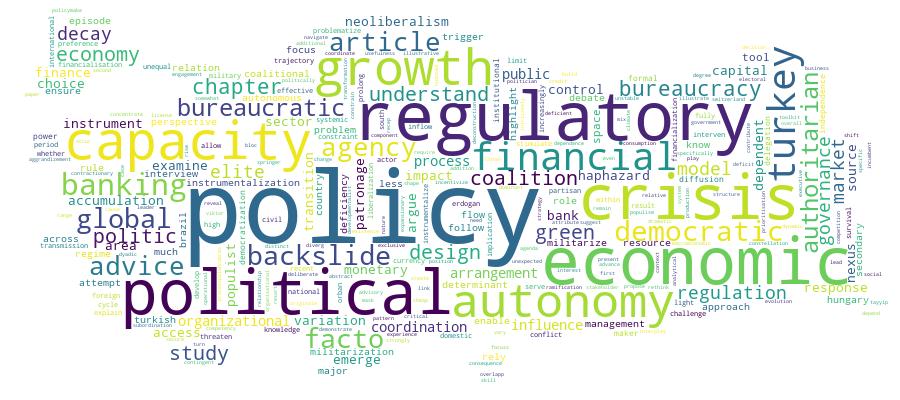Çoban, Mehmet Kerem
Loading...

Profile URL
Name Variants
Çoban, Mehmet Kerem
M.,Çoban
M. K. Çoban
Mehmet Kerem, Çoban
Coban, Mehmet Kerem
M.,Coban
M. K. Coban
Mehmet Kerem, Coban
Coban, M. Kerem
Coban, M.K.
M.,Çoban
M. K. Çoban
Mehmet Kerem, Çoban
Coban, Mehmet Kerem
M.,Coban
M. K. Coban
Mehmet Kerem, Coban
Coban, M. Kerem
Coban, M.K.
Job Title
Dr. Öğr. Üyesi
Email Address
Main Affiliation
Political Science and Public Administration
Status
Former Staff
Website
ORCID ID
Scopus Author ID
Turkish CoHE Profile ID
Google Scholar ID
WoS Researcher ID
Sustainable Development Goals
15
LIFE ON LAND

0
Research Products
16
PEACE, JUSTICE AND STRONG INSTITUTIONS

2
Research Products
14
LIFE BELOW WATER

0
Research Products
6
CLEAN WATER AND SANITATION

0
Research Products
3
GOOD HEALTH AND WELL-BEING

0
Research Products
17
PARTNERSHIPS FOR THE GOALS

2
Research Products
4
QUALITY EDUCATION

0
Research Products
2
ZERO HUNGER

0
Research Products
10
REDUCED INEQUALITIES

6
Research Products
7
AFFORDABLE AND CLEAN ENERGY

0
Research Products
13
CLIMATE ACTION

1
Research Products
1
NO POVERTY

0
Research Products
9
INDUSTRY, INNOVATION AND INFRASTRUCTURE

0
Research Products
12
RESPONSIBLE CONSUMPTION AND PRODUCTION

0
Research Products
8
DECENT WORK AND ECONOMIC GROWTH

0
Research Products
11
SUSTAINABLE CITIES AND COMMUNITIES

0
Research Products
5
GENDER EQUALITY

0
Research Products

This researcher does not have a Scopus ID.

This researcher does not have a WoS ID.

Scholarly Output
12
Articles
7
Views / Downloads
65/22
Supervised MSc Theses
0
Supervised PhD Theses
0
WoS Citation Count
50
Scopus Citation Count
61
WoS h-index
4
Scopus h-index
4
Patents
0
Projects
0
WoS Citations per Publication
4.17
Scopus Citations per Publication
5.08
Open Access Source
3
Supervised Theses
0
Google Analytics Visitor Traffic
| Journal | Count |
|---|---|
| Administration & Society | 1 |
| Competition & Change | 1 |
| Governance-An International Journal of Policy Administration and Institutions | 1 |
| Handbook of Policy Advice | 1 |
| International Series on Public Policy | 1 |
Current Page: 1 / 2
Competency Cloud


